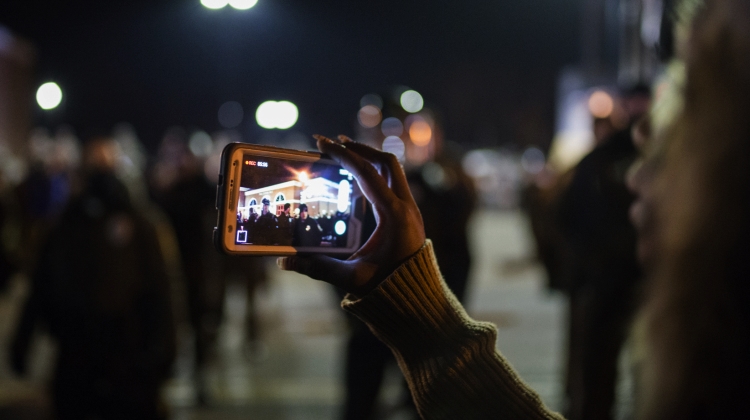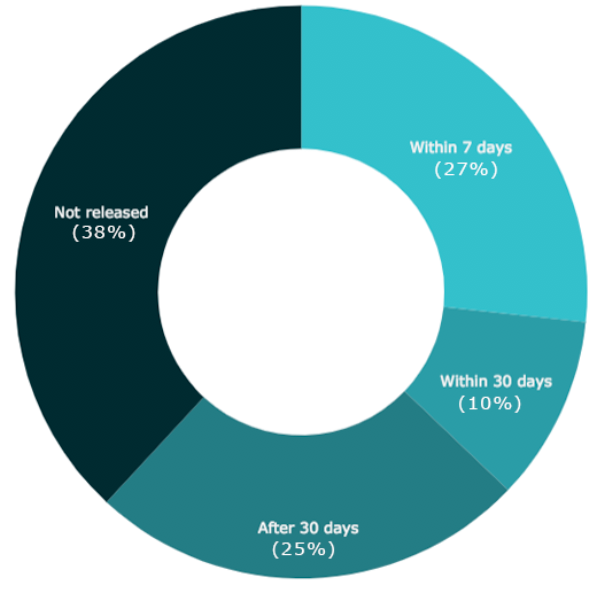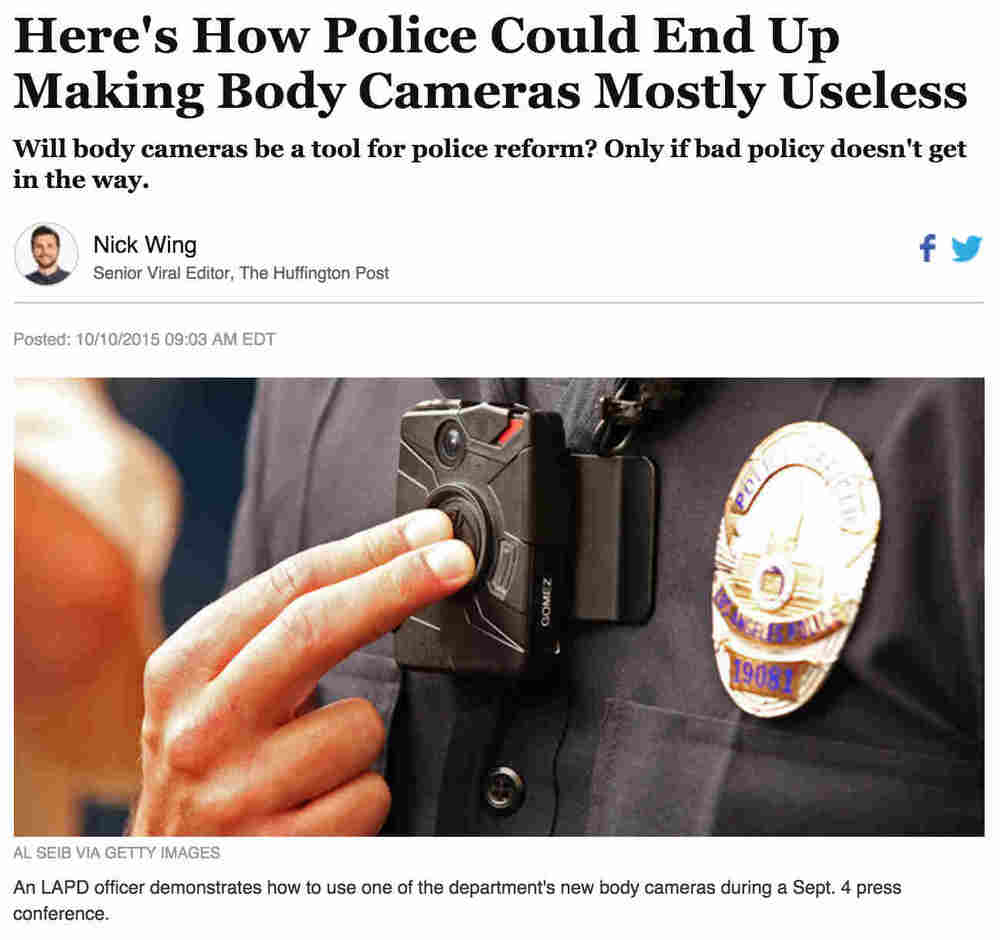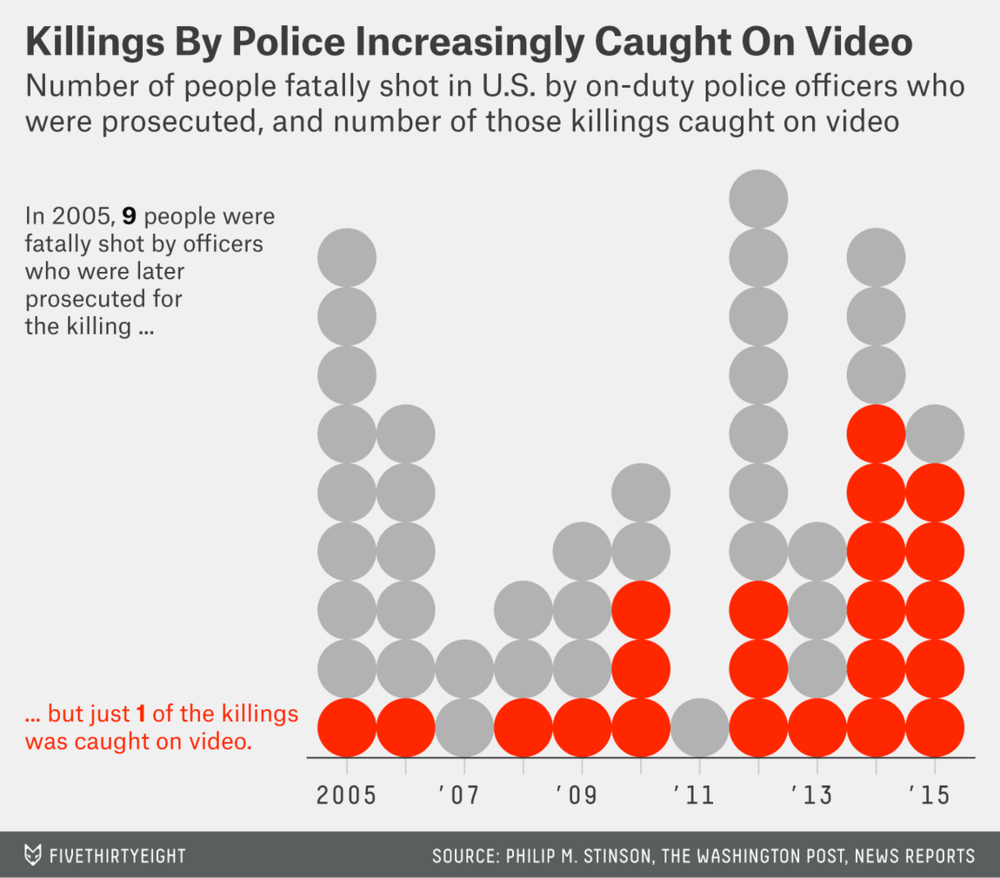While they are not a cure-all, body cameras and cell phone video have illuminated cases of police violence and have shown to be important tools for holding officers accountable. Nearly every case where a police officer was charged with a crime for killing a civilian in 2015 relied on video evidence showing the officer's actions.
Policy Solutions

Body cameras
⚠️Due to a range of research studies finding no evidence that body cameras reduce police use of force, we caution cities against adopting new body camera programs. Places that have already implemented body cameras should ensure they are governed by the following policies reinforcing accountability:
-
require officers with body cams to record all law enforcement interactions and prevent officers from having discretion to turn the cameras off
-
notify subjects that they have the option to remain anonymous and stop recording/storing footage if they choose this option
-
allow civilians to review footage of themselves or their relatives and request this be released to the public and stored for at least two years
-
require body and dash cam footage to be stored externally and ensure district attorneys and civilian oversight structures have direct access to the footage
-
require police departments, whenever they want to deny a Freedom of Information Act (FOIA) request for body or dash cam footage, to prove in court that the footage constitutes a legitimate FOIA exemption (Ex: Illinois House Bill 4355)
-
include a disciplinary matrix clearly defining consequences for officers who fail to adhere to the agency's body camera policy.
-
consider whether cameras or mandated footage are tampered with or unavailable as a negative evidentiary factor in administrative and criminal proceedings
-
prevent officers from reviewing footage of an incident before completing initial reports, statements or interviews about an incident
-
prohibit footage from being used in tandem with facial recognition software, as fillers in photo arrays, or to create a database or pool of mugshots. (Ex: Baltimore PD Body Cam Policy)
-
update privacy laws to protect civilians from having video or audio recordings released publicly that do not contain potential evidence in a use-of-force incident, misconduct incident, discharge of a weapon or death.
(Ex: ACLU Model Policy)

The Right to Record Police
Ban police officers from taking cell phones or other recording devices without a person's consent or warrant and give people the right to sue police departments if they take or destroy these devices. (Ex: Colorado Law)
Read the Research Below to Learn More About This Issue:














